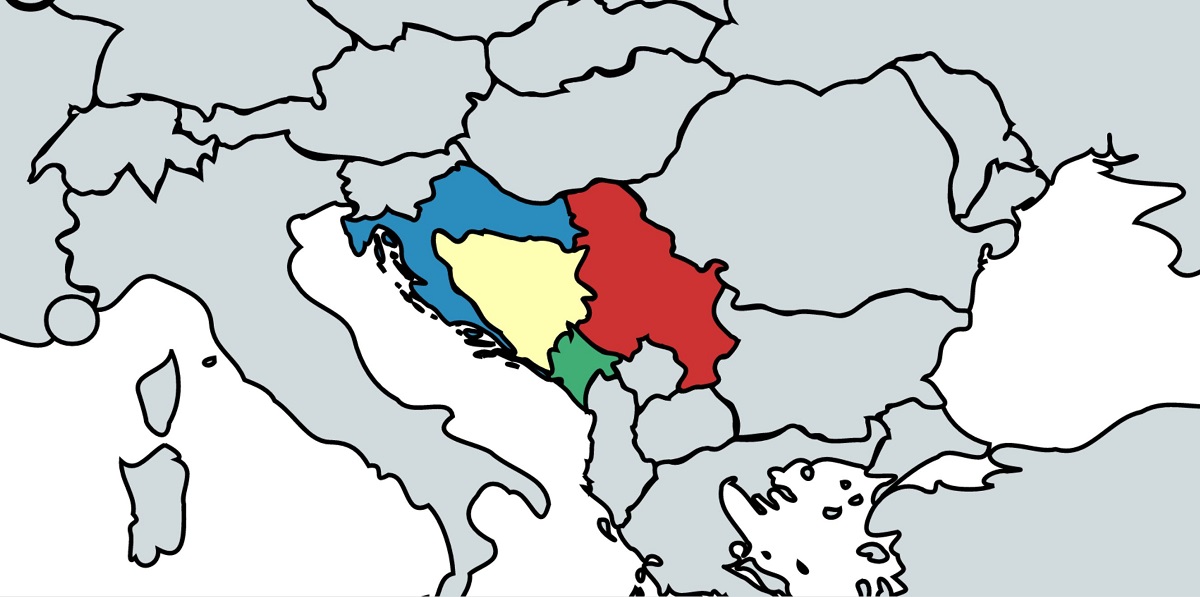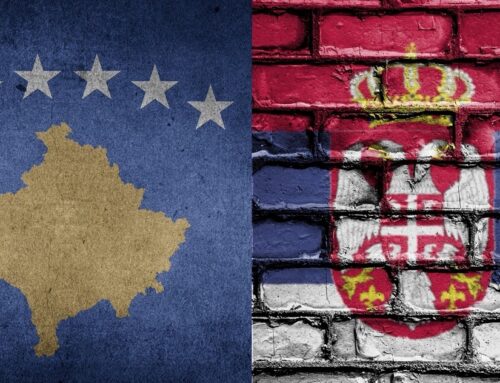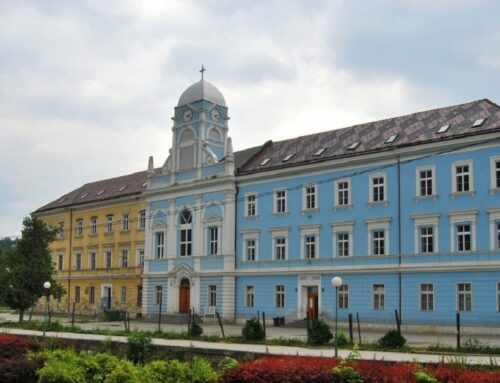Ministries of Foreign Affairs of four Western Balkan states, namely Bosnia and Herzegovina, Republic of Croatia, Republic of Serbia and Montenegro are mostly smilar in terms of their organisational structure, formation and their main responsibilities. All four of them were established in the 1990’s, during the period of Yugoslavian’s dissolution, while Bosnian and Herzegovinian Ministry is the ‘youngest’ of them all as it started operating after the Dayton Peace Agreement entered into force. Generally, all of the below-listed Ministries are in charge of states’ diplomatic, bilateral and multilateral relations as well as taking care of the issues concerning their citizens abroad (voting rights, visas, residential status, etc.). Also foreign policies of these states are quite comparable, as their policies are aimed at joining the European Union and NATO, or they are focused on improving their position in the Union and NATO (e.g. Croatia and Montenegro). Therefore, Croatian Ministry of Foreign Affairs for example, is integrated with the Directorate for the European Affairs, making it one single Ministry for both of the focus points of the Croatian Foreign Policy. These current foreign policies of the four ex-Yugoslavian states differ from the official foreign policy positions of this socialist federations mainly because Yugoslavia advocated a non-aligned policy, not siding either with the West or the East specifically or any alliance or union. However, since the independency of these states in 1990’s, their Ministries of Foreign Affairs have been extremely dedicated to ensuring good diplomatic relations with other states globally as well as working on biletaral and multilateral cooperation epecially in Europe.
As a part of the Council of Ministers of Bosnia and Herzegovina, Ministry’s of Foreign Affairs of Bosnia and Herzegovina main responsibility is foreign policy of the state. According to the Law on Ministries and Other Administrative Bodies, this Ministry is responsible for the implementation of the state’s established policy and improvement of international relations in accordance with the positions and guidelines of the Presidency, giving proposals on state’s positions on relevant topics and issues in the international arena, representing Bosnia and Herzegovina in diplomatic relations with other states, international organisations and international conferences, tasks related to the residential issues of state’s citizens abroad, planning, organising and preparing bilateral and multilateral agreements, international visits and meetings and reports for the Presidency, Council of Ministers and other state’s institutions regarding the implementation of foreign policy of Bosnia and Herzegovina and the like. These numerous tasks are performed in different organisational units, 17 of them, which make up this Ministry. Ministry of Foreign Affairs of Bosnia and Herzegovina operates since 1997 and since then, 7 ministers have held the position of a minister, including the current minister Bisera Turković, who is also a first woman in this position.
Croatian Ministry of Foreign and European Affairs was established in 1990 and since then, this institution has changed several official names until Ministry of European Integration joined its structure in 2005. Similarly to Bosnian’s Ministry, Ministry of Foreign and European Affairs of the Republic of Croatia has in its scope of work representation of the state in the international arena, tasks related to international security and cooperation as well as international economy, preparation and signing of international agreement, maintaining and building relations with diplomatic missions of the states and international organisations in Croatia as well as maintaining and improving relations of Croatia in the international arena with a special emphasis on the Euro-Atlantic integration. Current Minister is Mr. Gordan Grlić Radman, who has been appointed in July 2019.
The Ministry of Foreign Affairs of the Republic of Serbia is also responsible for maintainance of consular and foreign affairs of the state. Current Ministry was formed in January 1991 and since then it has had 8 Ministers, including Ivica Dačić, the current Minister. This Ministry is divided into multiple sectors, each of which deals with different aspects of Serbia’s foreign policy – bilateral cooperation, multilateral cooperation, European Union, security policies, consular issues, economic diplomacy and a general secretariat. Just as the Croatian and Bosnian Ministries, this Ministry’s main tasks are coordination of foreign policy and other international activities of the state, protection of interests of the state abroad, prepares draft laws, regulations and legal advice on subject matter related to international law. It is well connected with other Government’s bodies, with which it regularly communicates, exchanges reports and analytical reports and provides recommendations for those bodies regarding the Serbia’s official position on issues in the sphere of its foreign policy and relations with other states, international organisations and in the international conferences.
The Ministry of Foreign Affairs of Montenegro is one of the ministries of the Government of Montenegro responsible for foreign policy and European affairs, including the process of Montenegro’s accession to the European Union. The current Minister of Foreign Affairs is Ranko Krivokapić, and since February 1991, when this institution was officially established, it has had 13 Ministers in total. Since the beginning of the century, this Ministry has gone through a lot of organisational and structural changes. In December 2010, Ministry for European Integration, which replaced the directorate that dealt with European affairs within the multilateral sector, joined the Ministry of Foreign Affairs of Montenegro, which received new responsibilities and the name Ministry of foreign affairs and European integration. However, only 6 years later December, this Directorate was separated from the Ministry of Foreign Affairs and again became a separate Ministry. Montenegrin Ministry of Foreign Affairs deals with realization and protection of the state’s interests and reputation abroad, helps Montenegrin citizens who live, work or travel abroad and supports Montenegrin businesses and other legal entities in the international market.
Generally speaking and not going into details, as outlined above, these four Western Balkan states have have their foreign policies oriented in the similar directions and their governmental institutions for foreign policies operate and are structured more or less similarly. However, if we take a deeper look into Ministries of each of the mentioned state, a few comparative differences are noticable and should not be ignored. Firstly, as already mentioned, they differ in the year of establishment, making the Bosnian and Herzegovinian Ministry of Foreign Affairs an institution that was officially formed and started working at the latest (1997). Secondly, only Croatian Ministry has the Secretariat of European Affairs integrated into its structure, therefore in its name, while the Serbian and Montenegrin Ministries have both individual departments for European affairs but also separate Ministries for European integration . On the other hand, in Bosnia and Herzegovina there is a separate Directorate for European Integration, that is dealing with this foreign-policy aspect specifically, which is a part of the Council of Ministers but not an integrated part of its Ministry of Foreign Affairs, which doesn’t have an individual deprtment for this matter. Moreover, as Montenegro and Croatia are the NATO member states, both of their Ministries of Foreign Affairs have General Directorates or administrative departments for their membership, which are in charge of tasks related to their membership in this alliance and are aiming to strenghten their position and involvement in NATO affairs. However, membership in NATO is a question primarly tackled by their Ministries of Defence. Serbia and Bosnia and Herzegovina, which are not yet members of NATO, don’t have in their Ministries of Foreign Affairs departments specifically assigned to the tasks related to the process of joining NATO. In Serbian Ministry there is a sector for security policy and in Bosnian and Herzegovinian Ministry there is a sector for multilateral affairs, which are partly responsible for the tasks related to the accession process. As in Montenegro and Croatia, Ministries of Defence are mostly in charge of NATO in these two states as well.
Aside from these structural differences, related to the main foreign policy goals of the four analysed states, there are also differences in the number of their organisational units. Thus, Ministry of Foreign Affairs of Bosnia and Herzegovina has 17 units, in Croatian Ministry there are 18 units, Serbian Ministry has 11 units. Speaking of units, Sebian Ministry is the only one of the listed four that has a separated administartive unit for cooperation with the diaspora and Serbs in the region, which operates based on two general program activities: preservation and strengthening of national and cultural identity and protection of the rights and interests of the diaspora and Serbs in the region. Other three Ministries only have units for consualr affairs that are among all other questions, also responsible the diaspora and their citizens residing abroad. Besides these organisational differences between these Ministries, there are also slight differences in the main directions of the foreign policies of these four states. Thus, Bosnia and Herzegovina focuses on preserving its integrity, independence and securing its multilateral relations, Croatia’s main focus is on its position in European Union and NATO, Montenegrin foreign policy’s main focus is on the state’s position in the internationally and regionally and Serbia is mostly focused on its EU joining process. Accordingly, Ministries of these states emphasize these main foriegn policies’ directions through their activities and therefore differ in their bilateral and multilateral approaches as well as in their positions regarding certain issues in the international organisations and conferences.





